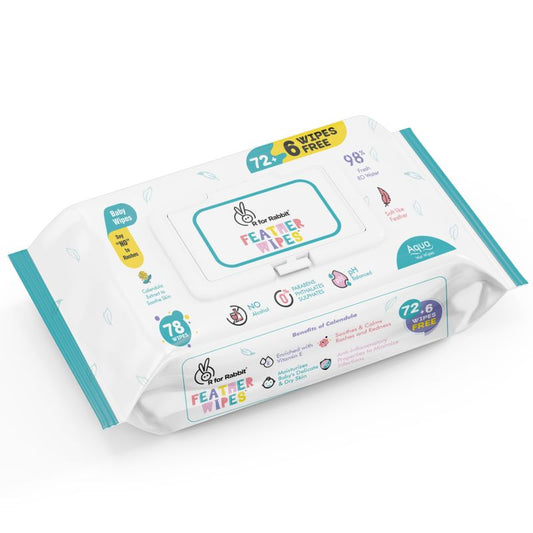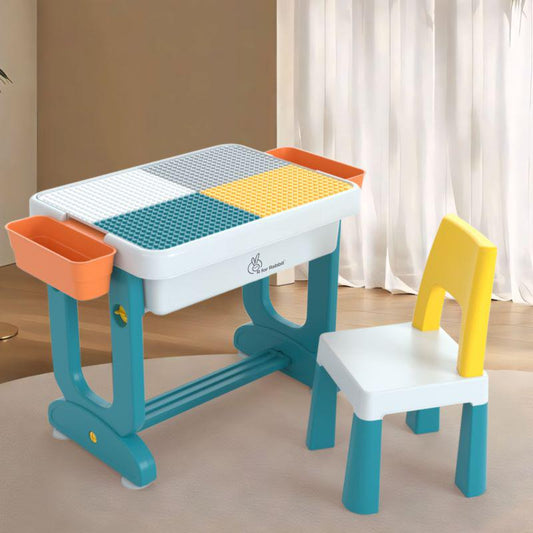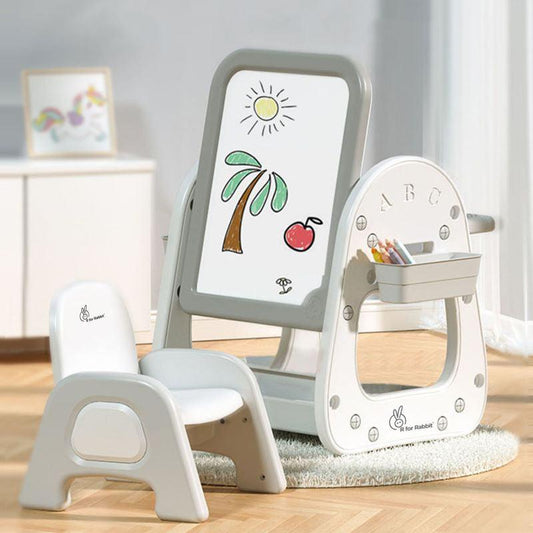10 Useful Tips to Prevent Monsoon Diseases in Children

The monsoon is full of cool breezes, splashing showers, and lots of fun for children. In addition to the enjoyment, there is a risk of waterborne infections and other health issues. Bugs, viruses, and bacteria grow faster in humidity, stagnant water, and varying temperatures.
It is more likely that children get infected by these viruses because their immune system is still developing. It is your responsibility as a parent to ensure that your children have a good time without falling ill or getting injured in the rain. Here are 10 useful tips to prevent monsoon diseases in children.
10 Valuable Tips on How to Protect Children from Monsoon Diseases
Are you ready to protect your kids from these unknown health hazards as the rainy season approaches? This blog offers 10 useful tips to prevent monsoon diseases in children.
1. Wash Your Child's Hands Regularly
Cleaning the hands of your child is one of the best practices to prevent transmission of the diseases associated with the monsoon season.
-
Significance of hygiene after outdoor games
Children may be infected by viruses, illnesses and bacteria through mud and puddles. They will be able to prevent dangerous germs by washing their hands when going out of the house.
-
Use child-friendly soaps or sanitisers.
One should use soft, child-friendly soaps that are gentle on their skin. These safe and highly effective products will help prevent the threat of skin irritation.
2. Do Not Eat Street Food and Drink Contaminated Water
When it is rainy, you ought not to eat street food and drink contaminated water because your chances of catching foodborne and waterborne infections are very high. As parents, you have to be particular with what the child consumes, as far as drinks and food are concerned, so that he or she can be healthy.
-
Prepare fresh meals at home.
Street food might be a germ paradise due to poor hygiene and storage. When you cook fresh homemade food, you control the ingredients, hygienic conditions, and food safety, and there is a lower chance of food-based poisoning.
-
Encourage boiled or filtered drinking water.
Do not provide your child with water that is not boiled or treated. It may contain disparaging viruses or bacteria. In order to prevent the infection of children through contaminated water, particularly in the monsoon season, make it a point that they should always have access to hot or filtered water.
3. Put Dry, Breathable Clothes on Kids
In the monsoon, make sure that the skin of your child remains dry because wet skin may cause fungal diseases and rashes. Pieces of clothing that circulate air freely help in making them feel comfortable.
-
Choose quick-drying cotton fabric.
Cotton is a great monsoon wear because it is a breathable fabric that absorbs sweat. Cotton, which dries quickly, helps minimise the threat of skin irritation or fungal diseases since the skin will not get wet over a long period of time.
-
Change clothes if they get damp or sweaty.
Wet clothing can aggravate health issues and make kids miserable. Change your child’s attire immediately if they become damp or sweaty to prevent a cold or rashes. Every time you leave the house, pack an additional set of clothing to be on the safer side.
4. Use Mosquito Nets and Repellents
Mosques flourish during the monsoon. They carry highly hazardous illnesses like malaria and dengue. Your child's health depends much on you keeping these germs away from them.
-
Protect from dengue and malaria carriers.
Eggs of mosquitoes are usually laid in stagnant water during the rainy season. With mosquito nets, particularly during the night, there is a lower chance of your child developing infections, such as malaria and dengue.
-
Safe repellents for babies and toddlers
The rainy season is one of the periods when insects and mosquitoes multiply. When you use safe repellents, particularly at night time, you will make sure your children have fewer chances of being infected with infections such as malaria and dengue.
5. Ventilate the House and Keep it Dry
The monsoon season also increases the moisture in the atmosphere, and there is a chance for mould and bacteria to flourish in the home. The health of the surroundings in which your child lives needs to be maintained and to do this; there needs to be a good flow of air.
-
Prevention of mould and bacterial growth
The wet climate promotes the culture of mould and bacteria, aggravating allergies and breathing difficulties. Health concerns can be reduced by drying and keeping the home ventilated.
-
Use dehumidifiers or natural ventilation.
The use of dehumidifiers reduces moisture levels naturally and keeps the house warm and dry by preventing moisture from areas such as the toilet and basement. With this approach, you can keep your home and surroundings naturally ventilated.
6. Immunity Strength through a Balanced Diet
Children are more vulnerable to illnesses, and a healthy diet will make them fit, which will further prevent diseases in monsoon season.
-
Include high-vitamin fruits and vegetables.
Provide your child with a mixture of fresh fruits and vegetables and those that are rich in vitamins A, E and C. They are also known to reduce most seasonal illnesses as they are immune-boosting.
-
Include immunity boosters like turmeric or tulsi.
Consume food containing turmeric or drink tulsi tea to boost your immunity. These natural boosters of immunity can make your child resistant to diseases.
7. Avoid Crowded and Poorly Ventilated Areas
During the monsoon season, there is congestion in cities that lack proper airflow, propagating flu and cold. Avoid taking your kids to such sites.
-
Reduce exposure to airborne infections.
Airborne diseases thrive in crowded places, such as busy markets and other enclosed areas that have inadequate ventilation. By avoiding these marketplaces, your child will have a lesser chance of suffering from such illnesses as the flu, lung problems, and so on.
-
Postpone visits to public play zones during heavy rains.
During heavy rains, congested public play areas, and wet and overheated conditions can foster the growth of germs. Retaining your child at home when there are heavy rains or taking them to a better and more controlled location will aid in avoiding illnesses.
8. Monitor for Early Signs of Illness
In case you are conscious of the preliminary signs, not only will your child get early treatment, but infections will lack time to propagate. The child should, therefore, be watched during the monsoon.
-
Track fever, rashes, diarrhea, or a persistent cough
Fever, rashes, diarrhea, or persistent cough are the usual symptoms of most diseases. Observing such symptoms will help you identify the diseases at an early stage, which will help you take necessary measures to avoid them during the monsoons before they develop further.
-
Seek prompt medical attention.
In case any of these symptoms are observed, seek medical care as soon as possible. Intervention is early and prevents the issues before they start. Therefore, it is you who gets your child the necessary treatment directly. The infections rapidly multiply during rainy seasons, and therefore, early treatment is very necessary.
9. Maintain Diaper and Toilet Hygiene
In the monsoon season, it is necessary to clean bathrooms to get rid of infections and skin irritations, especially in children.
-
Regular cleaning and disinfecting
Cleaning and sterilising the washroom surfaces regularly will be helpful in avoiding the spread of fungi and germs. During the monsoon season, when water may rapidly cause insect growth, this is crucial.
-
Use highly absorbent diapers to avoid rashes.
Select absorbent diapers to help prevent diaper rashes for your baby. Change diapers frequently and wipe the area using soft wipes to prevent irritation. This is especially important during rains because of the increased likelihood of skin infections.
10. Keep Kids Active Indoors with Creative Movement & Play
Children could be confined at home during monsoons. However, it is good to make them active both physically and emotionally so that they do not get bored and use their creativity.
-
Gentle stretching, yoga, or indoor games
Try yoga, moderate stretching, or indoor activities to keep your children occupied in the monsoon season when they are at home. You can even occupy your kids with these activities to enhance their coordination and flexibility.
-
Keeps circulation strong and spirits high
Child health and energy are maintained through physical activities during playtime, which increases movement and circulation. These activities improve their spirit, keeping them from getting fed up when they are stuck inside during heavy rains.
Also Read:
- 8 Powerful Monsoon Illness Prevention Tips for Children
- 8 Best Monsoon Diet Tips for Your Kids' Health
- Monsoon Diapering Tips for Preventing Leaks and Rashes in Humid Weather
- How to Travel with a Baby in the Rainy Season
- 8 Common Diseases That Your Child May Encounter During Monsoon
Conclusion - Stay Alert, Stay Healthy!
Children are prone to being attacked with illnesses during the rainy season. However, you can keep your children safe and healthy when you take the needed precautionary measures. The risks could be mitigated by keeping them clean, feeding them well, and ensuring that they are busy with physical activities.
You should constantly keep an eye out for the pre-symptoms of illness and seek medical assistance quickly in case of necessity. As a parent, your child will enjoy a happy and healthy rainy season through your active participation and knowing how to protect children from monsoon diseases.















